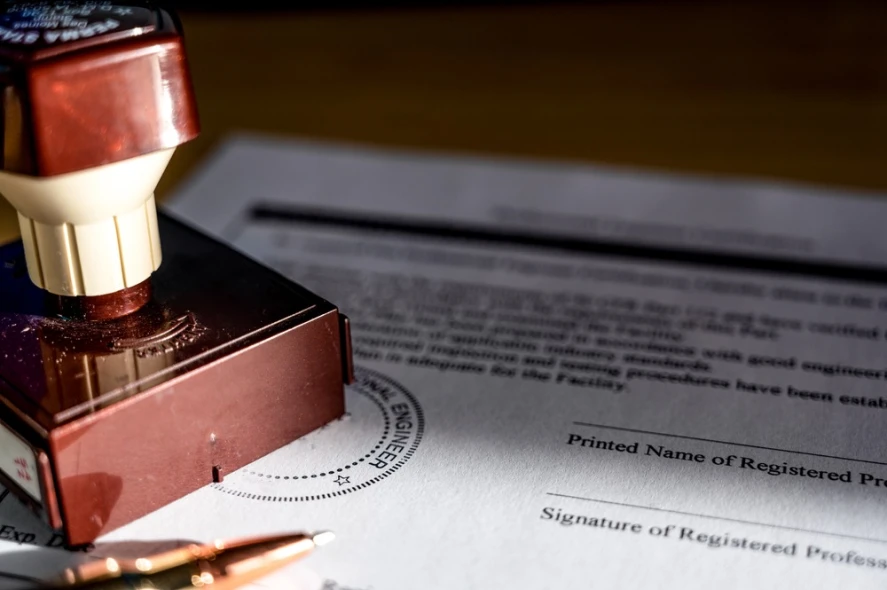
Staying up to date on the latest laws, regulations, industry standards as well as practicing with complete transparency are essential in avoiding a professional license investigation. Ensuring you consistently comply with all applicable rules and maintaining open communication with both clients and regulatory bodies can build a strong foundation of trust.
Our Texas license defense lawyer at Bertolino LLP are here to help you understand how you can avoid a professional license investigation. We’ll answer the most common questions about preventing an investigation regardless of your industry.
What Is a Professional License Investigation?
A professional license investigation is a formal inquiry conducted by a licensing agency to determine if a licensee has violated the rules, regulations, or statutes governing their profession.
Investigations in Texas can be triggered by complaints from clients, colleagues, or the public, as well as other red flags that come to the attention of the licensing board.
Why Is Preventing a License Investigation Important?
Preventing a license investigation is important because investigations can have severe consequences. You could face disciplinary actions ranging from fines to license suspension or revocation if you’re found guilty of professional misconduct or violations. This can not only harm your career but also tarnish your professional reputation.
Your reputation could still be tarnished even if you don’t face charges in the investigation. The fact that you had your license investigated could draw suspicion you were doing something wrong. This could lead potential clients or patients to avoid your practice.
How Can I Prevent a License Investigation?
While it’s impossible to guarantee you will never be subject to an investigation, there are proactive steps you can take to minimize the risk. Here are key strategies our Texas license defense attorneys suggest you follow:
Comply with All Licensing Requirements
Compliance with licensing requirements is essential for any professional. If you don’t comply with the requirements, you could be subject to disciplinary action against your license.
For instance, a dentist practicing in Texas must obtain a dental license from the Texas State Board of Dental Examiners (TSBDE). They must graduate from an accredited dental school, pass written and practical examinations, and demonstrate competence in essential dental procedures.
Staying informed about changes in dental laws, infection control protocols, and technological advancements is essential for dentists to make sure they’re compliant and deliver high-quality patient care.
If you’re a dentist being investigated by the TSBDE, our dental license defense lawyer in Texas can help you.
Maintain Ethical Conduct
Maintaining ethical conduct is another way you can prevent a license investigation. By treating your clients, staff, and other parties you come into contact with appropriately, you can decrease the chances of an investigation.
For example, a doctor practicing medicine in Texas must follow the Texas Medical Practice Act and follow the ethical guidelines set forth by the Texas Medical Board (TMB). This includes treating patients with respect and dignity, maintaining patient confidentiality, and providing honest and accurate information about medical conditions and treatment options.
Maintain Clear and Accurate Records
Maintaining comprehensive and accurate records helps you keep track of important information about billing, your patients or clients, and various policies in every industry. Keeping these organized means you can refer to them if you’re ever questioned about your license.
For a chiropractor practicing in Texas, the Texas Board of Chiropractic Examiners (TBCE) has a set of rules regarding records that they must follow.
This includes maintaining patient records, including the patient’s history, examination findings, diagnosis, treatment plan, and progress notes. Proper record-keeping is essential in complying with the TBCE’s standards of care and professional conduct.
Implement Quality Control Measures
Implementing quality control measures in your practice can help prevent a license investigation and any other complaints you could be subject to otherwise. By testing your services and noting their quality, you can make any adjustments to improve your practice.
The Texas Commission on Law Enforcement (TCOLE) sets the standards for Texas law enforcement officers.
The TCOLE establishes the training and standards for law enforcement officers, including their conduct and use of force guidelines. Law enforcement agencies can implement policies and procedures that align with TCOLE’s requirements and conduct internal audits to implement compliance.
Our law enforcement license defense attorneys in Texas can help you if your license is at risk.
Obtaining Clear and Informed Consent
Obtaining clear and informed consent is essential in any industry field. But when you’re dealing with the public’s health, safety, and financial assets, it’s essential. If you render services to someone who doesn’t completely understand what you’re doing, you could set yourself up for a professional license complaint and investigation.
A plumber providing services in Texas must adhere to the regulations set by the Texas State Board of Plumbing Examiners (TSBPE). This includes obtaining permits for specific plumbing projects and providing clients with detailed cost estimates and timelines.
Plumbers should communicate the steps involved in the plumbing project, potential risks, and any changes that may arise. By providing clear and informed consent, plumbers demonstrate professionalism and transparency, which can help build client trust and prevent potential investigations or complaints.
Click to contact our professional license defense lawyers today
When Should You Seek Legal Guidance to Protect Your Professional License?
Consulting with a license defense attorney in Texas is a proactive step to protect your professional license. An attorney can assess your practices, policies, and procedures to identify potential areas of concern and advise you on best practices, changes and improvements to make which will help prevent investigations.
There are two times when getting legal help from a Texas license defense attorney at Bertolino LLP can be beneficial. The first scenario is when you’ve received a complaint you’re worried about and could become a professional license investigation. The second scenario is when your industry’s board has already notified you that you will be investigated, which could turn into formal charges against your license.
Regardless of which scenario you find yourself in, one of our license defense attorneys can:
- Give you a case evaluation: Our attorney will thoroughly review the complaint and assess its validity, strengths, and weaknesses to develop a strategic plan for your defense.
- Respond to the complaint: We will prepare and submit a comprehensive and well-crafted response to the licensing board or investigating authority on your behalf.
- Go through the legal process: We’ll guide you through the investigation process, explaining each step, your rights, and potential outcomes to make sure you are well-informed.
- Preserve evidence: We’ll gather and preserve evidence to support your defense, including documents, records, and any relevant information.
- Provide interview preparation: If necessary, our lawyers will prepare you for interviews or depositions with the investigating authorities, making sure you are ready to provide accurate and appropriate responses.
- Provide representation at administrative hearings: If necessary, our lawyers will represent you at any scheduled conferences and hearings.
Complete a Case Evaluation form now
Contact Us to Learn More About Preventing Professional License Investigations
If your professional license is going to be investigated or you are worried a complaint could trigger an investigation, our team of Texas license defense attorneys at Bertolino LLP can help.
Contact us for a free case consultation and learn more about preventing a professional license investigation.
Call or text (512) 476-5757 or complete a Case Evaluation form














